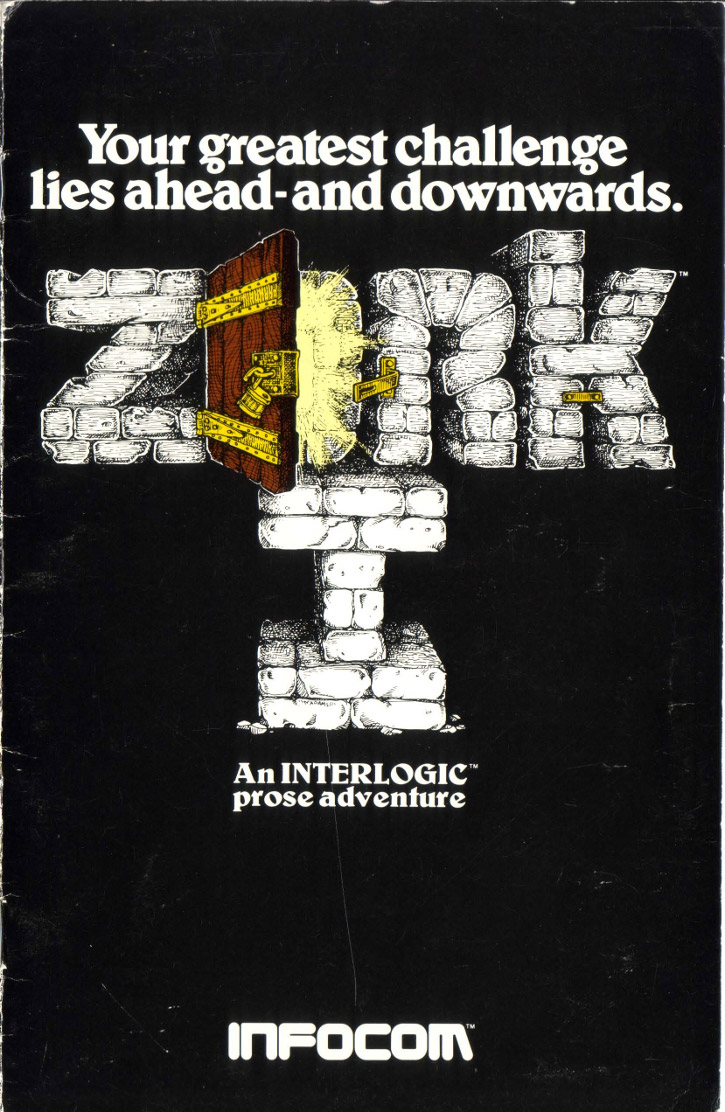If you’re a certain breed of nerd of a certain age—let’s say the D+D-playing variety who came of age in the eighties—you know what Zork is.
For those who aren’t either of those two things, Zork, was one of the first interactive adventure computer games and one that was totally text-based. Think that computer game that Tom Hanks plays as a kid in Big, minus the video part. The game was developed in the late 70s by Tim Anderson, Marc Blank, Bruce Daniels, and Dave Lebling—members of the MIT Dynamic Modelling Group—and was noted for its recognition of more advanced sentence syntax than its forerunner, Colossal Cave Adventure, the first computer adventure game but one that only accepted simple two word commands (“hit troll” vs “hit troll with sword”).
If all of that sounds pretty mundane in this day and age, it definitely is, given where we are technologically 40-some years later, but, at this time, this was high art in computing and gaming. In 1981, computing magazine BYTE wrote of Zork “”No single advance in the science of Adventure has been as bold and exciting,” continuing—”That the program is entertaining, eloquent, witty, and precisely written is almost beside the point…Zork can be felt and touched—experienced, if you will—through the care and attention to detail the authors have rendered.”
As a computer-less kid in the early 80s, I remember heading after school to the classroom of my mom, who was a teacher, so I could play Zork on their Macintosh after school hours and, likewise, inviting myself over to friends’ houses with computers so we could try to puzzle the game out together. Much as with D+D—another childhood love of mine—the game forced your imagination into overtime, sitting, staring at a blinking green or amber cursor on the black computer screen trying of so hard to figure out how to advance the game. Among other things, it helped to awaken in me an adolescent hunger for exploration—both real-world and theoretical—that I truly believe to have been key in my personal development.
Now, decades later, those of us who remember the game can revisit the experience via the web, through a number of online emulators. Of them, I like the version of Zork hosted by IPlayIF—a site that acts as a library for text-based interactive fiction. So what are you waiting for—your greatest challenge lies ahead!




